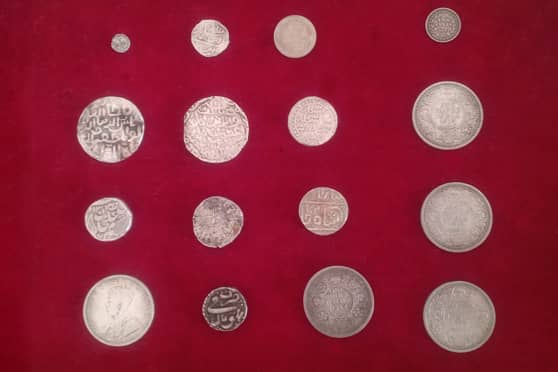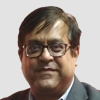How to make a career in museum curation: Advice from numismatist Mahesh Kalra


Do you have a thing for museums? Have you ever looked at an old coin and wished that the worn-out piece of metal could talk about the hands and regions it passed through centuries ago?
We caught up with Mahesh Kalra, museum professional and the director of Centre for Numismatic Information and Studies, to know how the passion for old coins and artefacts can be turned into a profession.
Edugraph: Most people don’t know much about Numismatics. Can you take us through this interesting field?
Mahesh Kalra (MK): Numismatics is the study of coins but it’s not theoretical. Here you need to know how to handle the coins that are in front of you. In this field, you need to be curious and put in a massive effort to read coins as nobody becomes a numismatist without developing that ability.
How did you become interested in this field?
MK: I have always been curious about coins. I still remember getting coins from the UAE in my seventh standard. Within a week or two — there was no internet in those days — I could make out the numbers and dates written in Arabic on the coins. And there began my journey with coins and Numismatics as a subject. Even though I went on to study medicine, this passion has always been within me.
What are some of the research opportunities for young people in this field?
MK: You can work for a museum, although it might not be direct employment. My first museum employed me for three years, after which there was a year’s break and then I started working with other museums. Most museums in India employ people on contracts as they want to test your expertise and ensure that you’re fulfilling their requirements.
However, there are lots of scope abroad for numismatists. I know some young Indians who have emigrated to the UK and have been working in British museums.
Coin auction houses employ interns, and working there would be a great chance to gain some experience. Many art galleries are also coming up with such jobs. Delhi Art Gallery is running a fantastic exhibition at Ghare Baire, Old Currency Building, BBD Bagh, Kolkata, where a lot of art students from the city worked as interns.
What educational qualification does one need to become a numismatist?
MK: You can do a master’s in Museology from the National Museum Institute or get a Postgraduate Diploma in Archaeology from the Archaeological Survey of India (ASI), Delhi. A master’s course in Ancient Indian Culture or even an MA degree in History could be a good starting point.
You can also do a master’s in Ancient Indian Culture and Archaeology — the University of Calcutta and Deccan College Pune offer this course. I think certificate and diploma courses in Persian and Arabic languages are essential as the main tool of a numismatist is the knowledge of scripts.
During my stint in Kolkata, I learnt the Bengali script as Assamese and Bengali coins have scripts similar to Bengali.
Does the Centre for Numismatic Information and Studies offer any programmes or short/certificate courses for students?
MK: We offer short courses in Numismatics. I have been giving lectures to students in collaboration with other departments.
I’m currently doing an online workshop to display the coins in my collection. Obviously, it’s not the same as holding a coin in the palms but this is as close as you could get. I am open to tie ups with different educational departments.
 Students can specialise in a discipline they are passionate about. You can really make it big but you’d also have to be patient for that. You need to do a lot of internships and collect experience certificates.- Mahesh Kalra
Students can specialise in a discipline they are passionate about. You can really make it big but you’d also have to be patient for that. You need to do a lot of internships and collect experience certificates.- Mahesh Kalra
You worked with the curation department of different museums and organisations. Could you share your experience for those wanting to take it up as a profession?
MK: The best thing about curation is that you would be able to visit a lot of museums and develop a sense of how to exhibit an object with experience. The museum field is really growing and the role of the curator has evolved accordingly.
The field of museum curation now mostly deals with ‘infotainment’ as the visitors want quick information to be presented to them in a creative way. Curation is all about how to convey it briefly by attaching small labels or information tags to objects. The other thing is going across the country and visiting other museums.
Technology plays a big part in curation today. Curators now need to know how to put a light source to illuminate an artefact or a painting as they are displayed to the general public.
I got my training at the British Museum, which runs an international training programme for mid-career professionals.
What is the scope of museum curation as a profession in India?
MK: You can be a general curator or a specialist curator. General curators narrate a story about any object. They are not specialists but have enough knowledge of exhibiting or enhancing a gallery and its beauty.
Specialist curators are experts of a specific discipline. For instance, I’m a specialist curator for my expertise in Numismatics.
I would recommend students to specialise in a discipline they are passionate about. You can really make it big but you’d also have to be patient for that. You need to do a lot of internships and collect experience certificates.
What are the different levels of curation that one can explore as a career?
MK: You should work as an intern first and then look for places that employ curatorial associates. The next step would be the position of assistant curator. Then comes the position of curator. A curator may become the assistant director or director of a museum — that’s a full career curve.
Would you like to share some tips for students interested in a career in Museum Studies or Numismatics?
MK: There is no alternative to hard work — you must burn a lot of midnight oil to become an expert. For instance, you’d be barely able to recognise coins when you begin to study Numismatics. But you’ll definitely progress over time and will be able to take delight in knowing and reading the coins that seemed a mystery at first!